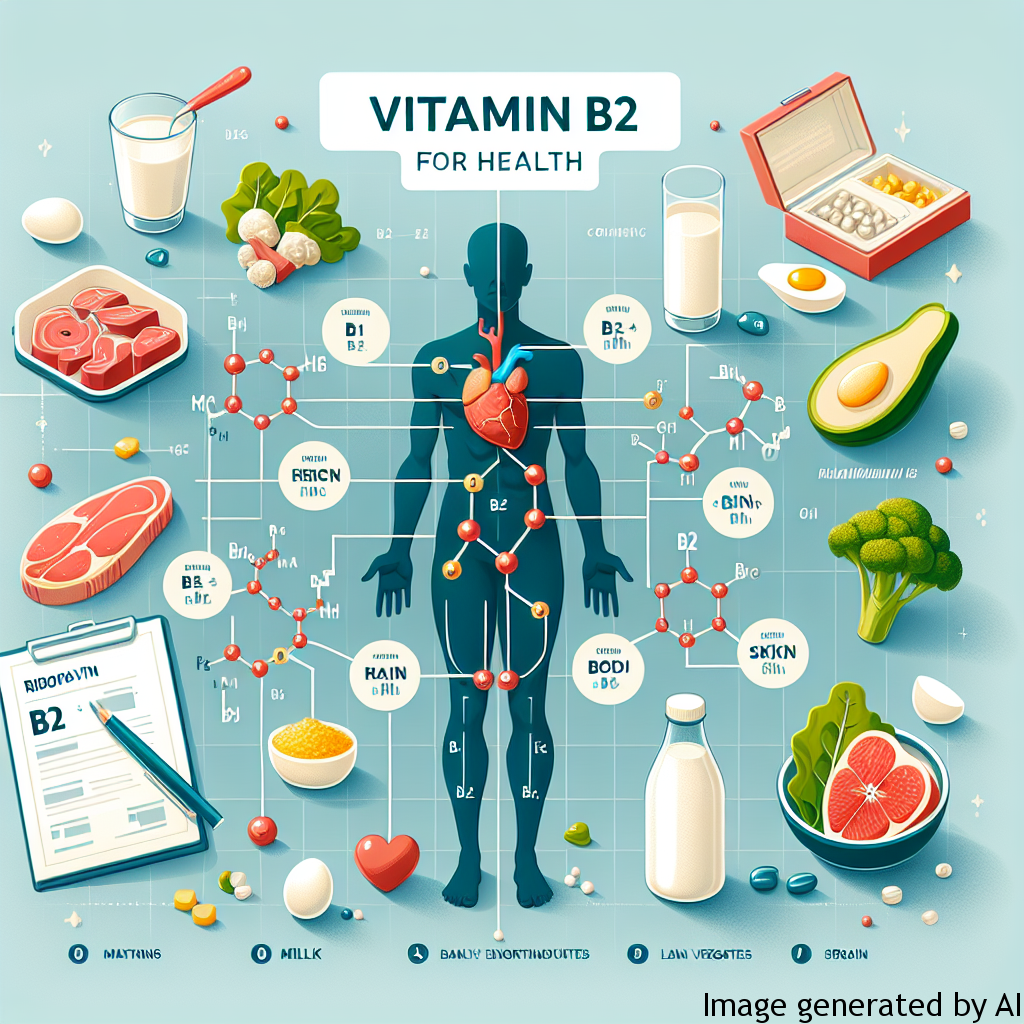Introduction
Vitamin B2, otherwise known as Riboflavin, is an essential component that plays a crucial role in maintaining the health of individuals. Known as a water-soluble vitamin, it participates in key processes within our body, which emphasizes the importance of its regular consumption.
The Role of Riboflavin in Health
In general, the key role of Riboflavin is to ensure the regular functioning and growth of body cells. It also assists in breaking down carbohydrates, fats, and proteins, therefore helping the body to generate energy. Riboflavin also helps the body to process amino acids and fats, and to activate vitamin B6 and folic acid.
Maintenance of Skin and Digestive Health
Riboflavin significantly contributes to the health of the skin, hair, and liver. It also plays a fundamental role in maintaining the health of our digestive tract, which further emphasizes its role in general health.
Prevention against Migraine and Cataracts
Studies suggest that Riboflavin may reduce the frequency of migraines, although it doesn’t appear to reduce the pain or length of a migraine. Additionally, when consumed together with other essential nutrients, Riboflavin can help to prevent cataracts.
Examples of Riboflavin Deficiency Effects
Not consuming enough Riboflavin may lead to a deficiency known as ariboflavinosis. Symptoms include sore throat, cheilosis (cracks in the lips and corners of the mouth), inflammation of the mouth and tongue, and anemia. Riboflavin deficiency can also slow down metabolism and can contribute to oxidative stress and damage to the DNA in our cells.
Tips for Maintaining Adequate Riboflavin Levels
Maintaining adequate levels of Riboflavin involves following a balanced dietary plan. Foods rich in this vitamin include organ meats (like kidneys and liver), lean meats, eggs, green vegetables, dairy products, and fortified cereals and grains.
Conclusion
In conclusion, Riboflavin forms an integral part of our health due to its multiple roles in varied bodily processes. Not only does it help in maintaining our skin and digestive health, but also helps in the prevention of certain health complications. Therefore, it emphasizes the importance of maintaining a balanced diet, rich in Riboflavin.

